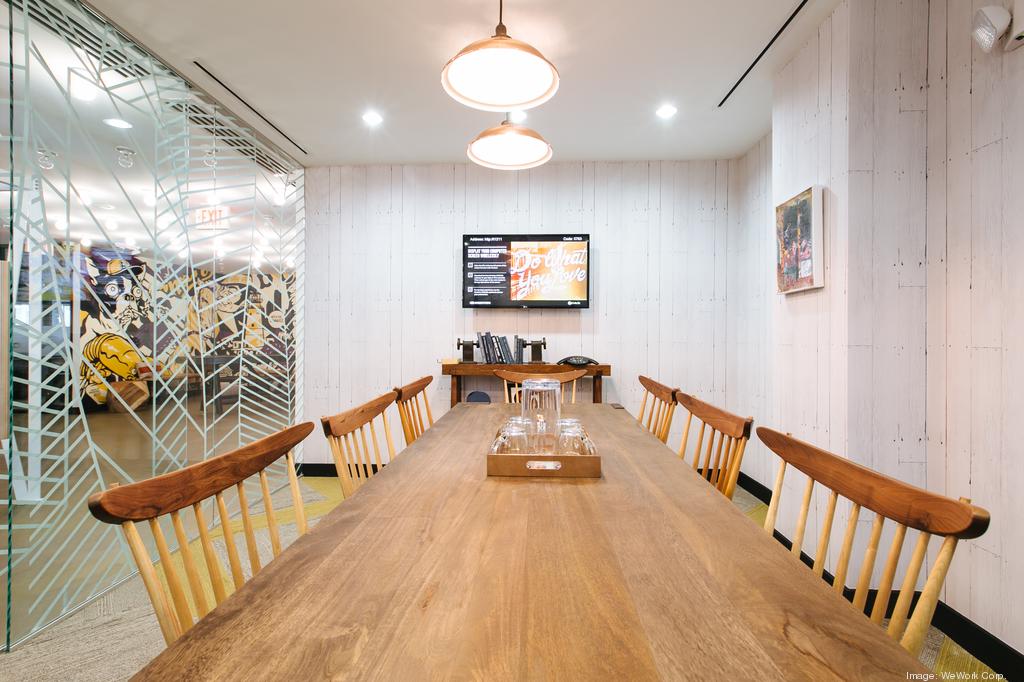From: http://www.bizjournals.com/
In late December, I left the comforts of my cubicle and the incessant hum of the newsroom to spend a week at co-working space WeWork near South Station.
New York-based WeWork, with locations in more than 20 cities worldwide, added 250,000 members last year and is now worth an estimated $10 billion. That’s double its valuation from a year ago. After spending a week getting to know the entrepreneurs that pay for WeWork’s space and amenities, I now understand why the company is adding entrepreneurs in droves.
WeWork is one of many companies in the Boston area that offer co-working space for the city’s burgeoning startup scene, including Worklab, Coalition and the Cambridge Innovation Center. While its membership prices are on the costly end, ranging from $45 a month to more than $450 a month per desk, the price is not a deterrent for entrepreneurs.
For a relatively modest cost, entrepreneurs say they get a ready-made office space complete with a sense of community, an internal social network and the enriching and collaborative startup culture that prospective employees want when they sign on to work for a startup.
WeWork member Vinayak Ranade, founder of recruiting startup Drafted, said he doesn’t have to worry about whether the coffee machine is stocked or whether a client needs to be let in the building. Instead, he can focus on the most important areas of building his business — product, customers, team and scaling. “It’s worth all the money to have those types of things taken care of,” he said.
Perhaps the biggest perk at WeWork is that entrepreneurs who pay for co-working space in one location can also be members in all 67 locations in 21 major cities. When it comes to scaling a startup, that’s priceless.
One attribute of WeWork that I found particularly surprising was that it’s not just a place for the millennial startup crowd. WeWork’s South Station location has more diversity, in terms of age, gender and nationality than one would find walking on the streets of Boston. The demographic that WeWork is targeting is all-inclusive.
Michael Hanson, principal materials scientist at energy technology startup Elysium Industries, said working at WeWork was a culture shock at first. After more than two decades working as a scientist with strict security clearance at New York-based Knolls Atomic Power Laboratory, Hanson said WeWork was a breath of fresh air. Even if his bosses are decades younger than him.
“I love the beehive of activity, the people, diversity, energy and spirit,” he said. “It was a thrilling culture shock but I thrive in this environment.”
Speaking of the “beehive,” it would be remiss of me not to talk about the single WeWork amenity that brings entrepreneurs together: free beer.
The brews on tap at WeWork are provided by Mighty Squirrel, a brewery startup whose founders work at — you guessed it — WeWork. Henry Manice, co-founder of Mighty Squirrel, said he’s fortunate to work alongside other entrepreneurs who also happen to be within his startup’s target demographic.
“We’ve got the exposure for the exact people we want to target,” he said.
An important note about the ever-flowing free booze, though, is that it’s not overused or misused. I never saw any WeWork member so much as look at the tap during the afternoons I spent there. It was largely left untouched during the daytime, probably because entrepreneurs favored the productivity and caffeine high brought about by the endless free coffee.
“The community is filtered for ‘doers.’ This is a place for focused, creative, driven people,” said Dave McLaughlin, general manager for WeWork’s Eastern U.S. and Canada divisions.
Boston is WeWork’s third-largest market, with more than 2,600 members from freelancers to employees of large companies across the South Station and Fort Point locations.
In spite of the perks — free beverages, chess boards, books, disposable toothbrushes and charming decor — I did discover some drawbacks. The cheapest membership option puts you on a colorful, contemporary eighth floor with beautiful couches, chairs and long desks, but it gets loud. Trying to concentrate, even with headphones on, becomes challenging. One WeWork member likened the ambiance to a swarming cafeteria. For most of the week, I decided to forgo the eighth floor and work on the first floor, where’s it’s quieter and just as comfortable.
Working remotely also makes it difficult to communicate with colleagues effectively, especially in an environment like mine, which pits employees against multiple daily deadlines. While Slack is a great messaging platform for coworkers, it does have its limitations, not least of which are the spontaneous water-cooler chatter with colleagues that breaks up my often exhausting workdays.
I was ready to leave the solidarity of my week-long WeWork excursion and return to the frenzied vitality of my office in the Financial District.
I do miss the fresh flowers and free beer, though.








Leave a Reply
You must be logged in to post a comment.